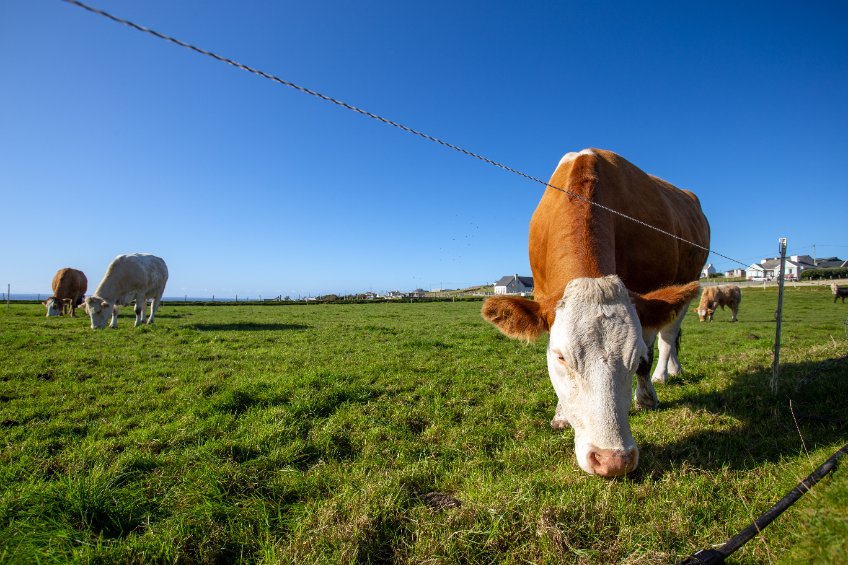
Northern Ireland is 'lagging behind' its southern neighbour on Bovine Viral Diarrhoea (BVD) legislative measures, farmers in the province warn.
NI's Department of Agriculture (DAERA) has been criticised by the Ulster Farmers' Union (UFU) following "years of not implementing a full suite of BVD measures".
These include measures that have supported the Republic of Ireland (ROI) in gaining recent approval for their BVD eradication programme, the UFU says.
The outcome has brought about "immediate trade implications" for NI producers moving cattle over the border for breeding and production, as they must meet new requirements (BVD). The UFU says all of this could have been avoided.
The ROI are expected to achieve formal BVD freedom status in 2023, however restrictions on the movement of NI animals have come into effect immediately.
The union's president David Brown said: "It’s utterly frustrating that we could’ve been in the same position had DAERA taken heed of our advice.
"With the full support of our members, we have lobbied constantly since 2017 to get a full suite of legislative measures in place like those deployed in ROI, to follow their successful blueprint.
"These would have included herd restrictions which could have had a dramatic effect by driving down positive numbers years ago, and neighbour notifications for herds not removing positive animals on time.
"Yet, despite our continual pressure over the years, DAERA have failed to deliver on these asks and this lack of action has landed us in this damaging situation today.”
Over the last decade, the UFU says strong gains have been made by industry led BVD measures, with the union working as a key stakeholder to ensure these were implemented.
Beyond calling for a compensation scheme to remove persistently infected (PI) calves, measures included a slaughter ban on positive and untested cattle, and BVD non-conformances within the Farm Quality Assured Scheme.
However, the UFU warns that this work is now being undermined as NI has 'fallen significantly' behind ROI in eradicating the disease and complex trade implications will come into play because of DAERA’s "reluctance to act appropriately".
Mr Brown said: “The requirements of the Export Health Certificate (EHC) to export to any state which is free from BVD is a guaranteed barrier to trade.
"DAERA are now having to commit resources towards trying to ensure NI’s farmers can continue to trade with ROI by training private vets in certifying that the detailed requirements of EHCs have been met.
"While this is now unfortunately needed, it could have been avoided with the proactive implementation of our considered and requested measures."
He added: “With that being said, it is essential that officials act with urgency to solve this issue in the manner that should have been applied long ago, instead of telling producers that they must meet new requirements.
"While commitment has been given to deliver revised legislation to make sure any herd retaining a PI is restricted, no further measures have been promised at this point by DAERA.
"Years of progress on BVD eradication have been wasted and the problem lies solely with their veterinary department,” he said.
